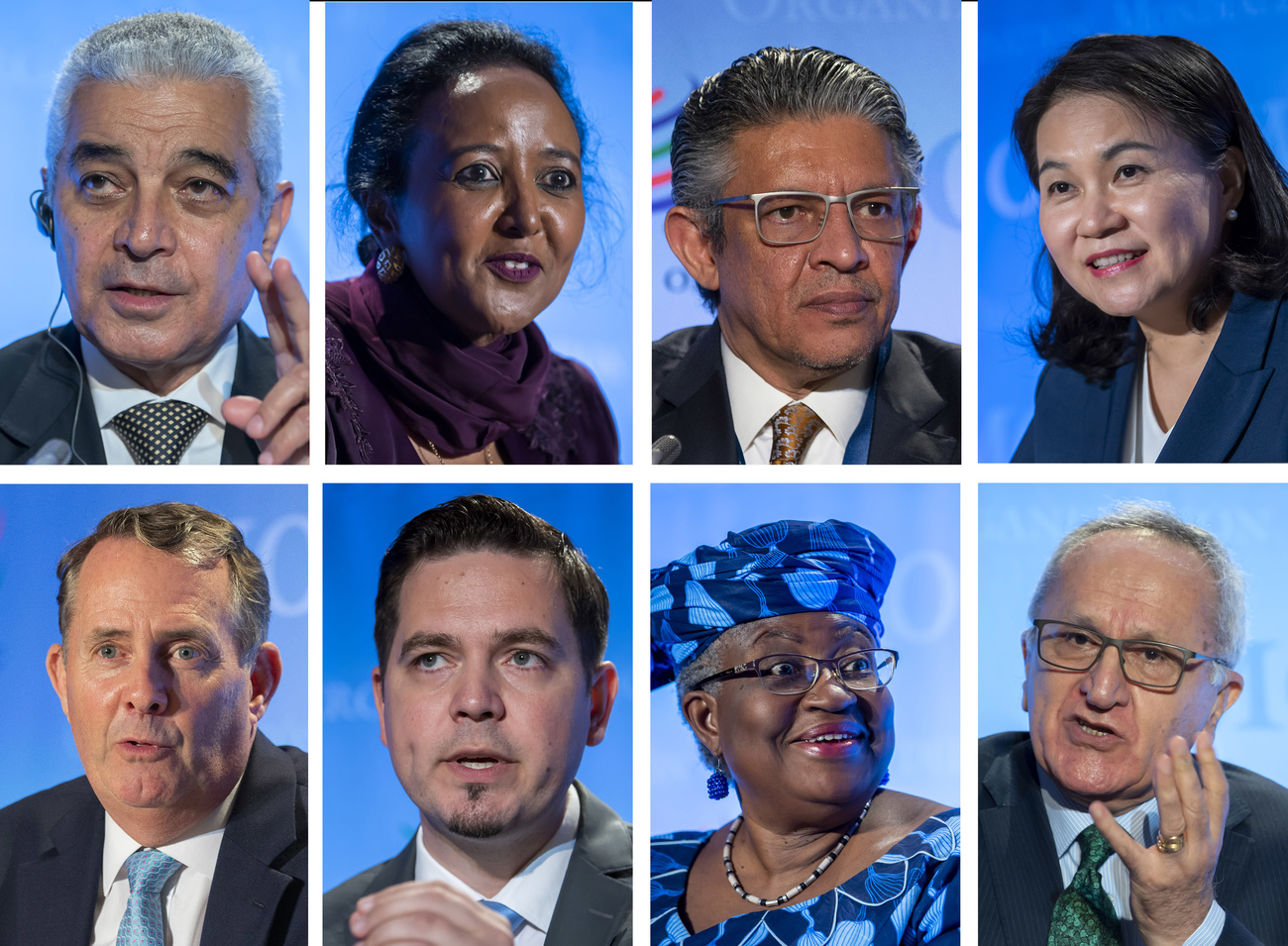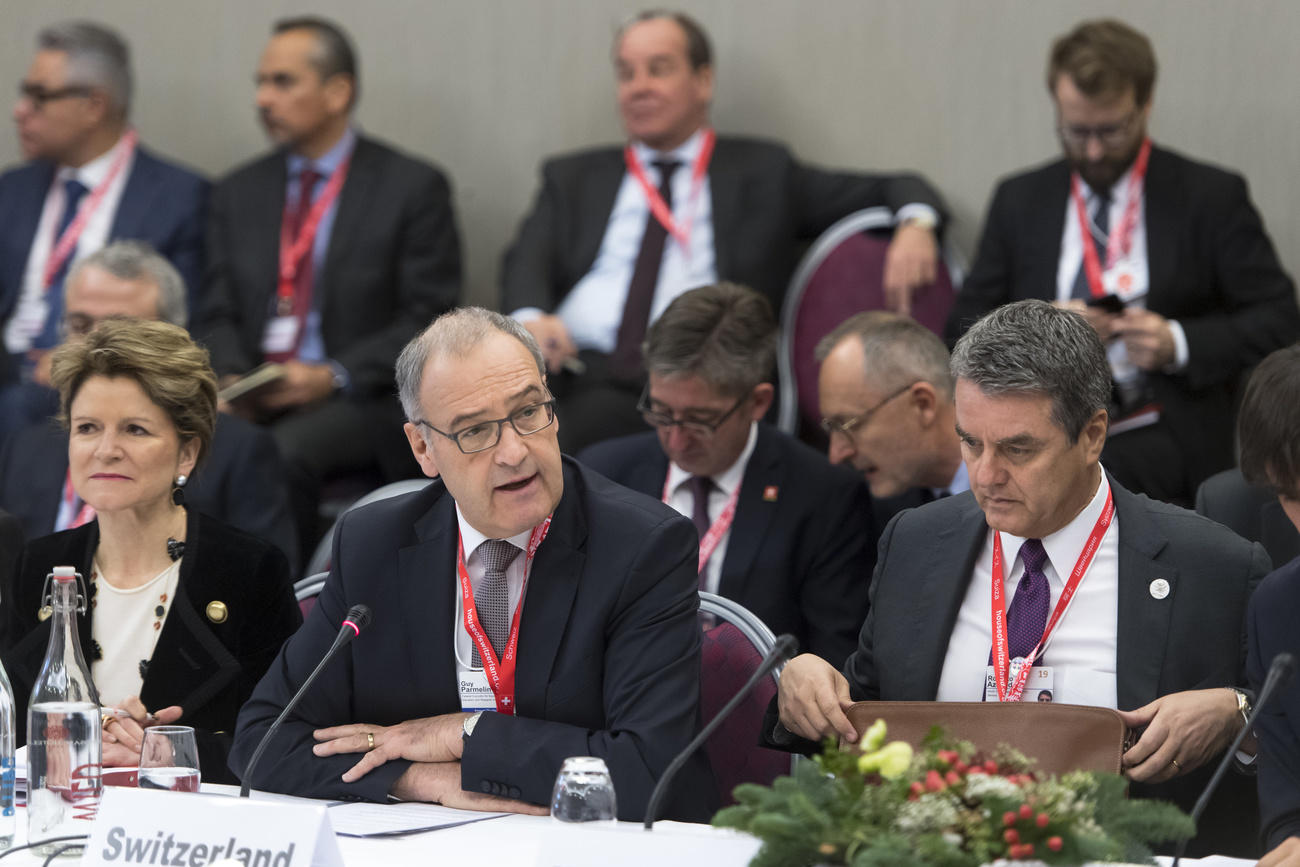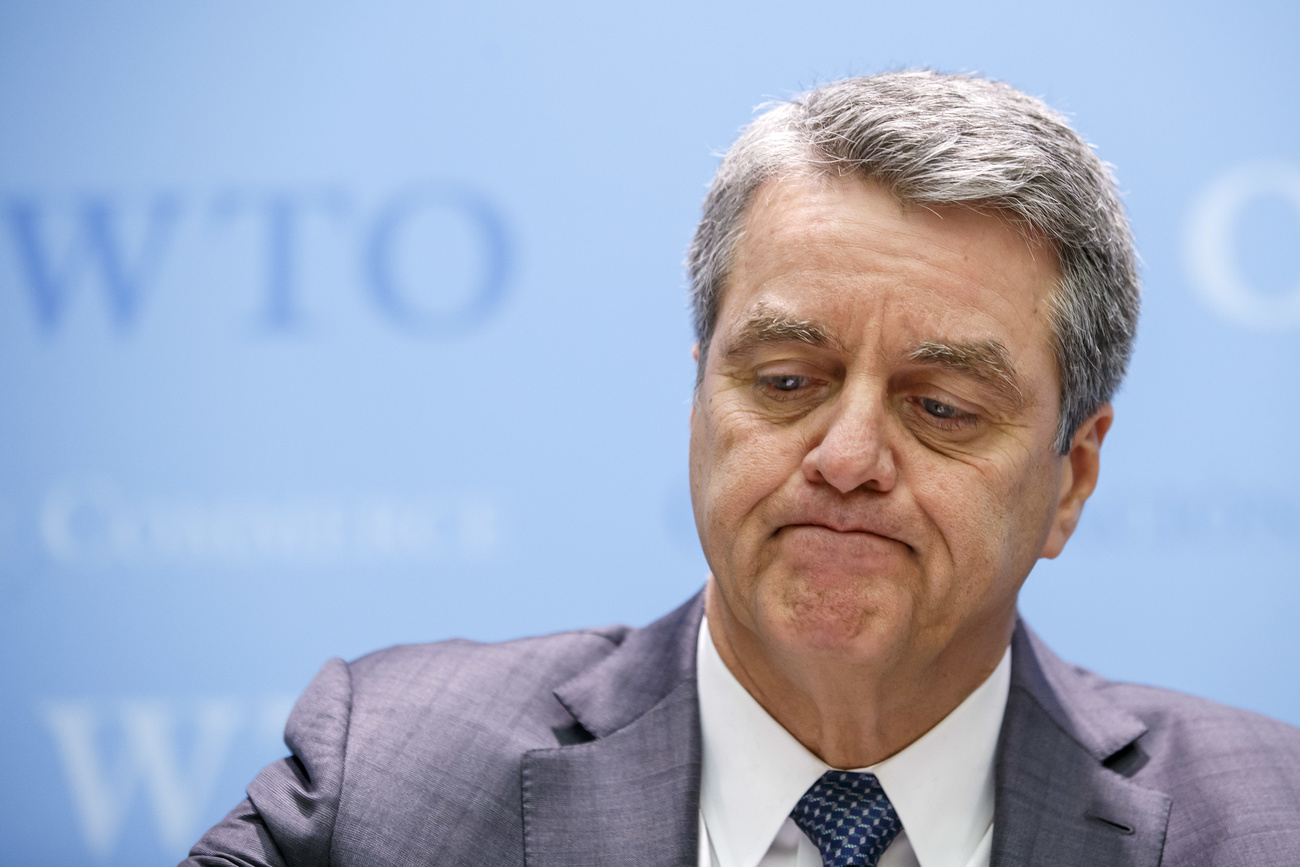
WTO boss’ recent early exit a warning shot to multilateralism

The embattled World Trade Organization has announced two shortlist candidates to be its new leader. In a historic first, both are women. But they are unlikely to find the job any easier than Brazil’s Roberto Azevedo.
Azevedo stepped down unexpectedly before the end of his mandate. Why did he go and what are the pressures of this job?
Either South Korean trade minister Yoo Myung-hee or former Nigerian finance minister Ngozi Okonjo-Iweala will be the next WTO director-general in a race expected to conclude in the coming weeks. An insight into Azevedo’s track record and reasons for going give some insight into what awaits his successor.
Officially, the Brazilian claimed that the gesture was a way to preserve the system, which had already been severely undermined. By anticipating the choice of the new director, he would prevent the election of the new boss from coinciding with and contaminating the WTO ministerial conference scheduled for 2021.

But for months, Geneva saw an intense war of narratives about what the fate of one of the most important diplomats of his generation would be. Some bet he would enter politics in his home country, Brazil. Others would claim he was under pressure from the Donald Trump administration. There was also a third group who saw this as a decision linked to the future of his wife – also the ambassador of Brazil, Maria Nazareth Farani Azevedo.
But on September 1, the mystery of his departure from the WTO was partly clarified. Azevedo would take the position of vice-president of PepsiCo in the US. The announcement took many by surprise, mainly because it represented the abandonment of public service.
Challenge
Azevedo became, in 2013, the first Brazilian to lead an international organisation with the dimensions of the WTO. But once in office he had to give concrete proof of his qualities. The WTO was experiencing its worst crisis, discredited by experts, marginalised by governments and ignored even by demonstrators who did not even bother to protest at its gates.
Its mission was to regain some kind of credibility, and Azevedo’s strategy was clear: to abandon the idea of immediately concluding the Doha Round, launched in 2001 and which had proved too ambitious at a time of international crisis.
He reduced ambitions, chose a relatively easier chapter in the negotiation – trade facilitation – and decided that his goal now was to save the WTO, not the Round itself.
Governments went to the Bali Ministerial Conference at the end of 2013 with the mission of leaving the island with at least one agreement. And Azevedo made a point of mediating, staying up nights and seeking solutions to obstacles, especially between the US and India. At the end, the WTO announced its first trade agreement in 20 years and Azevedo declared that the entity was alive. Or at least he hoped it would be.
Second mandate and Trump
In 2017, the progress made by Azevedo allowed him to fight and win a second mandate. But a few years after occupying his office overlooking Lake Geneva, Azevedo began to experience an unprecedented crisis in the organization. The partial Bali agreement did not give the negotiating impetus that many expected. The Doha Round was no longer a consensus and there was no guarantee that the organization itself would resist. In addition, the voices of those dissatisfied with its stance perceived as being overly pro-American were growing.
If Azevedo’s reelection took place without surprises, the following years would be marked by an unprecedented test for the survival of the WTO. His new term began at a time when Donald Trump’s US government was raising the possibility of adopting mechanisms to apply sanctions against partners without consulting the WTO or asking its permission.
The American stance left negotiators in Geneva worried. During the presidential campaign, Trump even said that the WTO “is a disaster”.
Azevedo knew that a decision by Trump against the WTO would represent the end of the entity and a coup of unprecedented proportions against multilateralism.
Instead of criticism, the experienced negotiator focused on strengthening the role of the international system. According to him, the existing structures were built as “direct responses to the bloody lessons of history” in a reference to the rules after the Second World War. “They represent the best effort in the world to ensure that the mistakes of the past are not repeated,” he warned.
Dismantled
But the US government adopted a different strategy. The White House has not abandoned the WTO but attacked it from within. Since 2017, Washington has vetoed any appointment of judges to the Appellate Body, a kind of maximum trade court.

More
WTO members agree on temporary body to settle disputes
The result was its dismantling in 2019 and the beginning of an era of the “law of the jungle”. The rules would continue to exist. But there would be no way to punish the Americans if they broke the rules.
While undermining the “jewel in the crown” of the international system, the American government forced the entity to undergo extensive reform.
Unable to prevent the dismantling of the courts, Azevedo focused on finding ways to reassure Americans that reform was possible at the WTO. But his weariness became evident, as did his inability to seek real solutions in face of governments who simply did not want to negotiate.
Resignation pressure?
When he finally left, Azevedo gave assurances that he made the decision thinking of the good of the WTO and its survival.
But the rumors did not end with his departure from Geneva. Weeks after he handed over his post, Bob Woodward’s book Rage (Simon & Schuster) revealed that Trump pressured him and even threatened him if his orders were not heeded. Azevedo denied the allegations.
But Azevedo’s idea of facilitating the transition began to sink almost immediately after he left. Among the four vice-directors, the goal was that one of them would take over the management work of the entity until a new choice of director was made in November. The idea of a smooth transition, however, was shattered after the American government insisted that it would be the US deputy director who would take over the organization until the new election. However the other governments did not accept and the stalemate forced all four deputy directors to coordinate their positions, something considered unfeasible.
On hearing of Azevedo’s resignation, a Republican Senator, Josh Hawley, wrote on his social networks: “turn off the light when you leave”.

More
The WTO’s next leader: Swiss perspectives on a global challenge

In compliance with the JTI standards
More: SWI swissinfo.ch certified by the Journalism Trust Initiative




























You can find an overview of ongoing debates with our journalists here . Please join us!
If you want to start a conversation about a topic raised in this article or want to report factual errors, email us at english@swissinfo.ch.